Table of Contents
Choosing the right spaghetti sauce for your meal can be a daunting task. With so many varieties of marinara and spaghetti sauces on the market, it can seem overwhelming to determine which one is best suited for you and your family. But fear not: we are here to help break down all the basics that go into selecting recipes, flavors, ingredients and quality when making this important decision!
In this blog post, we will compare marinara vs spaghetti sauce – what ingredients they contain and how their textures, tastes and aromas differ- so that you become an expert in no time!
What is Marinara Sauce?
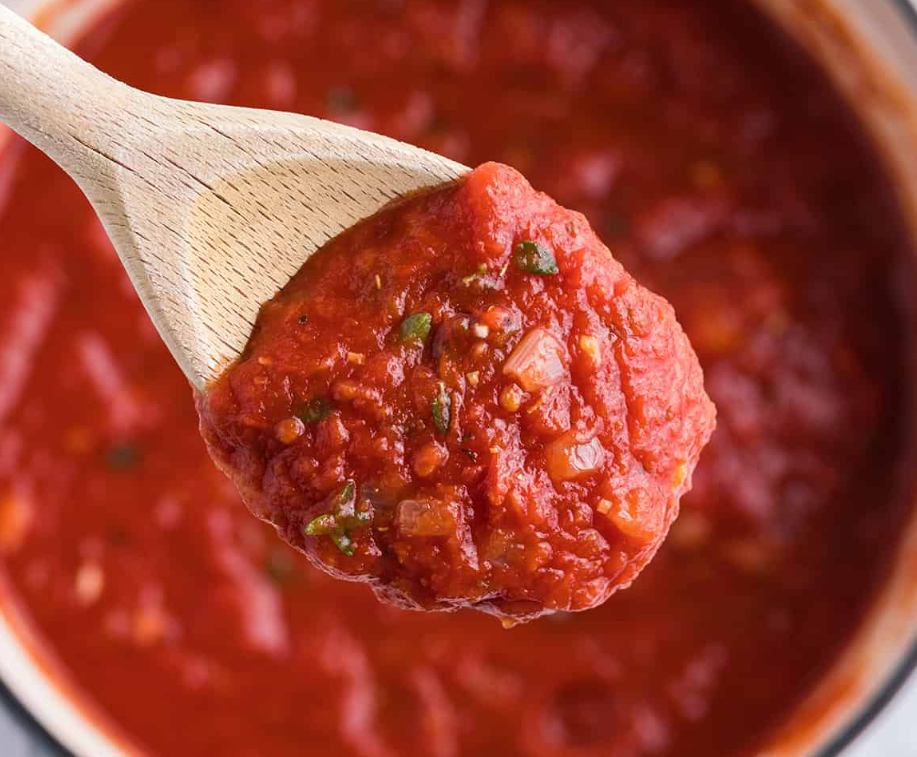
Marinara sauce is a seasoned Italian tomato-based sauce. It is usually served with pasta dishes and contains diced tomatoes mixed with herbs, garlic and onions. Marinara also often contains capers, olives, anchovies or other ingredients depending on the recipe.
What is Spaghetti Sauce?
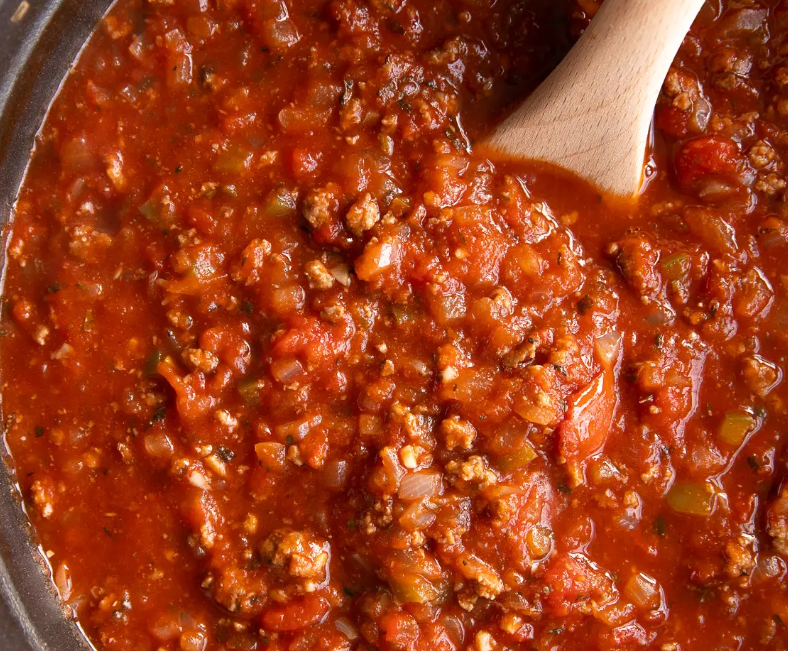
Spaghetti sauce is a more robust version of marinara sauce. While it still consists of crushed tomatoes and traditional Italian herbs, spaghetti sauces tend to contain meat such as sausage or ground beef. They also often include mushrooms and vegetables like bell peppers which are simmered in the sauce until tender.
Differences between Marinara vs Spaghetti Sauce
The differences between marinara vs spaghetti sauces come down to their ingredients, texture and flavor. Marinara sauce is lighter, brighter and often contains fewer ingredients than spaghetti sauces. Spaghetti sauces tend to be thicker, richer and contain more complex ingredients such as meat or vegetables.
Preparation Considerations
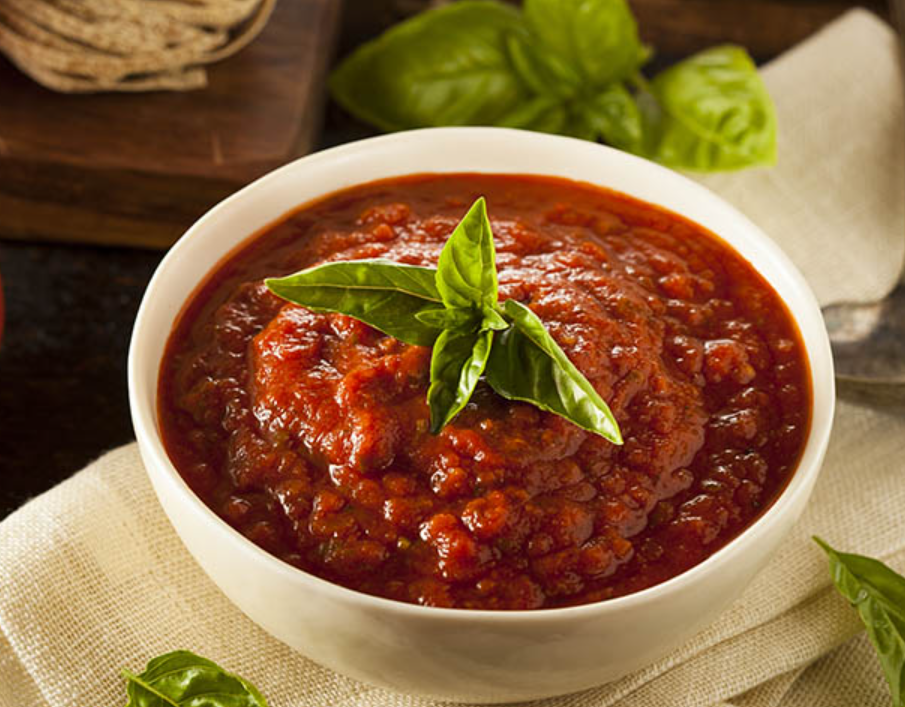
Which Type of Oil to Use?
When making marinara or spaghetti sauces, it’s important to use a good quality olive oil for maximum flavor. It is also essential to cook the tomato sauce on low heat so that it does not burn and becomes bitter.
Choosing the Right Spices
When it comes to selecting the correct spices for your sauce, there is no one-size-fits-all answer. It depends on personal preferences and what type of cuisine you are trying to create. For a basic marinara, classic Italian herbs such as oregano, thyme and basil work well. Spaghetti sauces typically include additional spices such as garlic powder, onion powder and ground pepper.
The Importance of a Quality Tomato Base
The base of any marinara or spaghetti sauce is tomatoes. It is important to use high-quality, fresh tomatoes for the best flavor in your dish. If you don’t have access to good quality tomatoes, opt for canned tomato paste or crushed tomatoes as an alternative.
Nutritional Attributes of Marinara vs Spaghetti Sauce
Caloric information
Generally speaking, marinara will be lower in calories due to its lack of meat and added fats from butter or oil. Spaghetti sauce tends to higher in calories because it contains more complex ingredients such as protein from meats or vegetables.
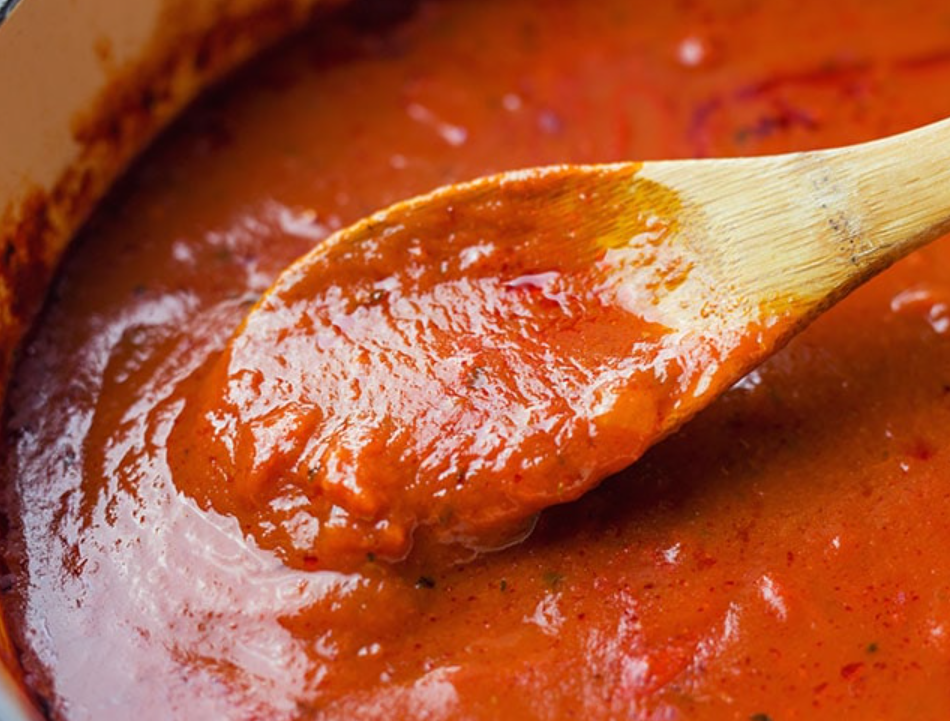
Macronutrient content
Marinara sauces are usually lower in fat and higher in carbohydrates than spaghetti sauces. This is because marinara sauces contain only tomatoes while spaghetti sauce typically contains added fats from butter, oil or other ingredients depending on the recipe. Spaghetti sauce also tends to be higher in protein due to its inclusion of meat.
Vitamins and minerals
Marinara sauces tend to be higher in vitamins and minerals due to their tomato base. Tomatoes are a great source of vitamin C, vitamin A, iron, folate and potassium. Spaghetti sauce can still contain these vitamins and minerals depending on the additional ingredients used.
Health Benefits Associated
Both marinara and spaghetti sauces offer health benefits as they are both made with tomatoes. Tomatoes are high in lycopene which can help reduce the risk of certain cancers, heart disease and stroke. They are also a good source of dietary fiber which helps promote overall digestive health herbs and spices used in marinara vs spaghetti sauces will vary depending on regional preferences and personal tastes.
Tips for Making and Storing Marinara and Spaghetti Sauce
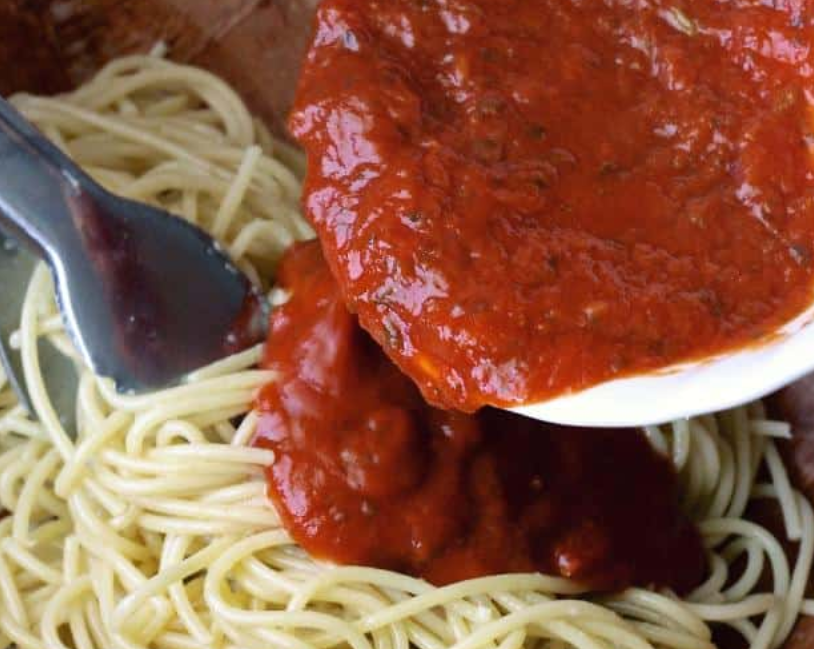
When making your own marinara and spaghetti sauce, it’s important to use fresh ingredients. Tomatoes should be ripe and herbs should be as fresh as possible for the best flavor.
It’s also recommended that you cook the sauces low and slow – this helps bring out their richest flavors. If storing leftovers, transfer them to an airtight container and refrigerate for up to four days. Freezing can help extend the shelf life of sauces for up to three months.
Which One Is Healthier?
At the end of the day, both marinara and spaghetti sauces are nutritious options that can be part of a healthy diet. However, marinara tends to have fewer calories and carbs than spaghetti sauce, making it a healthier choice for those looking to watch their intake of fats and proteins. Spaghetti sauce is better suited for those seeking out a heartier meal with added proteins and fats.
Frequently Asked Questions | Marinara vs Spaghetti Sauce
1. Can I use either one interchangeably in Italian dishes?
Yes! Though they have different flavors and consistencies, both marinara and spaghetti sauces can be used interchangeably in Italian dishes such as lasagna, pasta, pizza etc.
2. Is Marinara Sauce just another name for Spaghetti Sauce?
No, marinara is not just another name for spaghetti sauce. As mentioned above, marinara sauce is a type of tomato-based sauce made with garlic, onions, herbs, and sometimes other ingredients. Spaghetti sauce on the other hand is a tomato-based sauce made with ground meat, vegetables, and spices.
3. What are some common uses for Marinara Sauce?
Marinara sauce can be used as a base for many Italian dishes such as lasagna, pasta sauces, pizza toppings, and more. Additionally it can also be used as a dipping sauce for breadsticks or mozzarella sticks.
4. What are some common uses for Spaghetti Sauce?
Spaghetti sauce is most commonly used as the base for traditional spaghetti dishes such as spaghetti bolognese; however it can also be used in many other Italian dishes such as lasagna, eggplant parmesan, and more.
5. Can I make either sauce at home?
Yes, you can make both marinara and spaghetti sauces at home. Marinara sauce is typically made with canned tomatoes or fresh tomatoes, garlic, onions, herbs, and other ingredients depending on the recipe. Spaghetti sauce is typically made with ground meat such as beef or sausage, canned tomatoes, vegetables such as mushrooms or peppers, spices such as oregano and basil, and other ingredients depending on the recipe. Both sauces are relatively easy to make from scratch and can be stored in an airtight container in the fridge for up to a week.
The Bottom Line
Marinara and spaghetti sauces are both flavorful tomato-based sauces. Marinara is typically lighter, brighter and uses fewer ingredients while spaghetti sauce tends to be richer, thicker and includes a variety of additional ingredients such as spices or vegetables.
Read more at Ohsnap Cupcakes!